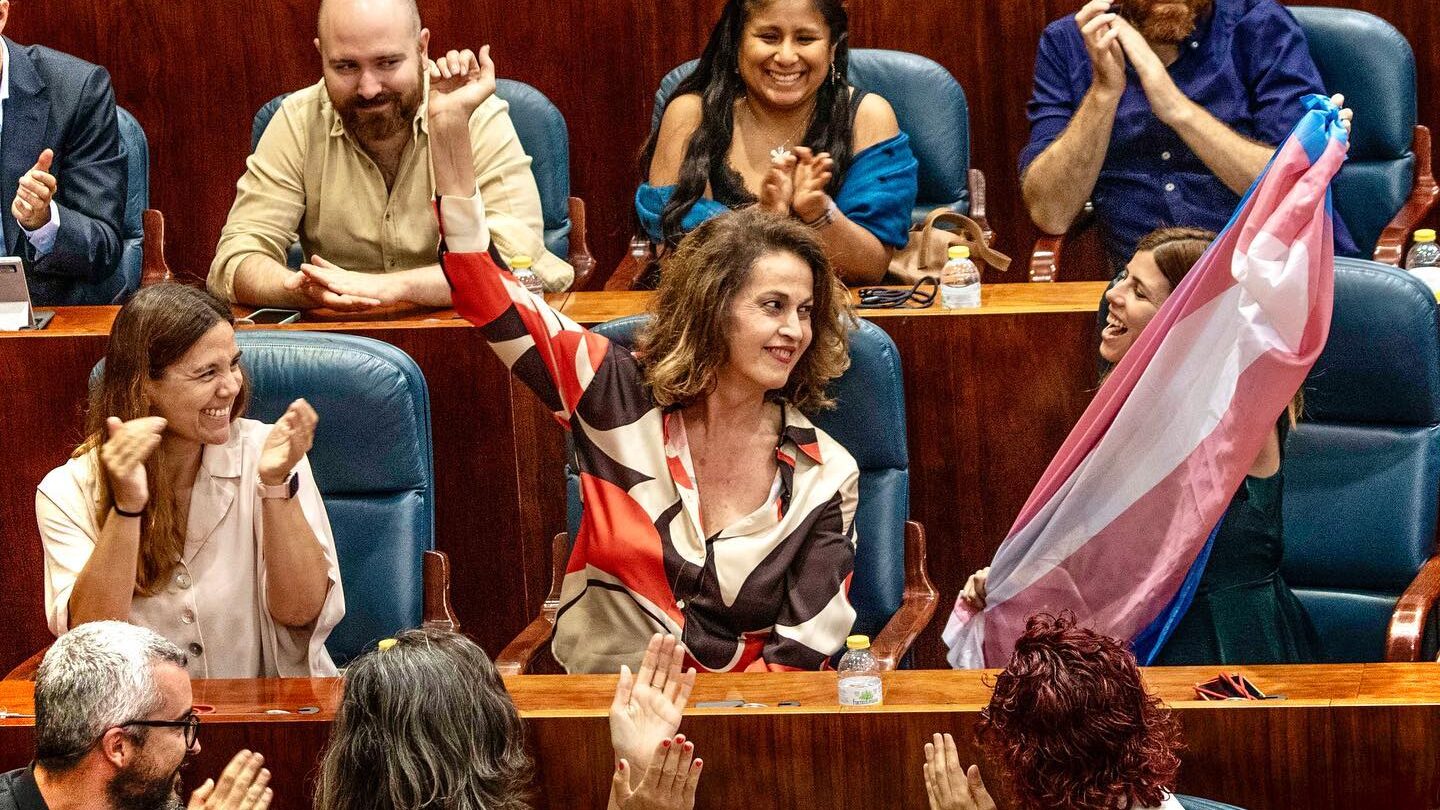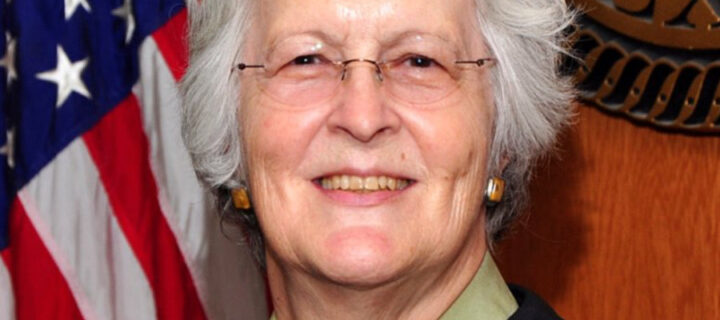
The Life of Carla Antonelli
Transgender women are increasingly making waves around the world, breaking down barriers and fighting for equality and acceptance. Among these trailblazers is Carla Antonelli, a transgender activist, actress, and politician from Spain.
Her tireless work and dedication to the cause of transgender rights has earned her international recognition and made her one of the most important figures in the movement.
Antonelli’s impact has been felt both in Spain and beyond, where her activism has helped to raise awareness of the issues facing transgender people and bring about positive change.
In this article, we will explore her life and work, from her early years as an actress to her groundbreaking political career and ongoing advocacy for transgender rights.
On this page
Childhood and Background
Carla Antonelli was born on July 13, 1959, in Güímar, a town located on the island of Tenerife in the Canary Islands, Spain. She was born Carlos Antonio, but later changed her name to Carla Antonelli after coming out as a transgender woman.

She grew up in a working-class family on the island of Gran Canaria and later moved to Madrid to pursue a degree in Fine Arts.
In 1977, at the age of 18, Antonelli left her hometown with only 300 pesetas in her pocket and moved to Las Palmas, Gran Canaria. She hoped to live as the woman she was meant to be, but her early years in the city were marked by hardship, fear, and discrimination.
She faced police harassment, social rejection, and struggled to make ends meet. Despite these challenges, she continued to pursue her passion for acting and eventually moved to Madrid in 1979, where she began to make a name for herself in the world of entertainment.
Showbiz
In Madrid, she faced new challenges as an actress, as directors of the time were hesitant to cast trans actors. However, she continued to pursue her passion for acting and gradually became a recognized figure in Spanish media.

In the 1980s, she made appearances in magazines, documentaries, and television programs, where she was interviewed and also served as a panelist.
Despite her growing success as an actress, her activism for transgender rights remained at the forefront of her life.
Filmography
- 1980 – Hijos de papá
- 1980 – Corridas de alegría
- 1980 – Pepe no me des tormento
- 1981 – Las guapas y locas chicas de Ibiza
- 1982 – Adolescencia
- 1999 – Extraños
- 1999 – Tío Willy
- 2000 – Periodistas
- 2001 – Policías
- 2002 – El comisario
- 2007 – El Síndrome de Ulises
- 2009 – El vuelo del tren
Transgender Rights
In 1997, she became the Coordinator of the Transgender Area for the Federal LGBT Group of the Spanish Socialist Workers’ Party (PSOE), a position she held for ten years. Her affiliation with the PSOE allowed her to become a key player in the fight for transgender rights in Spain.
She was also involved in the creation of a proposal to legalize same-sex marriage, which was included in the party’s 2004 election platform. After the PSOE won the elections, the proposal became law. Moreover, she also helped in the development of the Gender Identity Law for Trans People, which was approved in 2007.

The first objective was achieved after the Socialist Party’s victory in the aforementioned elections, but the “Trans Law” was delayed, leading Antonelli, a combative and resilient force, to go on a hunger strike with other activists to expedite the law’s passage.
Antonelli considers herself “socialist, left-wing, and Zapaterista,” and has even stood up to her own party when her convictions and activism required it. On behalf of politician Mercedes Gallizo Llamas, a pioneer of feminism in Aragon, she worked on the law that allows trans women to be admitted to women’s prison wards even if they have not undergone surgery.
Balancing Entertainment and Politics
Throughout her career as a politician and activist, Carla has never abandoned the world of acting, and since the 1980s, when she made her debut in Rafael Gil’s film “Hijos de papá,” she has appeared in numerous films, documentaries, and television series.
Some of her most notable roles include her recurring role (the first obtained by a transgender woman) in the Antena 3 series “El síndrome de Ulises,” which premiered in 2007 and aired for three seasons.

Carla played Gloria, a character who, in her own words (in an interview with El Mundo), received a “completely correct treatment that breaks all stereotypes” as a “transgender woman with a normalized life”
She also played the role of Corifea in Aristophanes’ “Lysistrata,” a production that enjoyed unprecedented success at the 2010 International Classical Theatre Festival of Merida, and with which she became the first transgender woman to play a character on the prestigious Merida stage.
Accolades
Carla Antonelli has received numerous awards throughout her political and activist career, a fight that is not over as she still faces insults and hate today.
In light of confessions like those mentioned above, perhaps the recognitions granted in her hometown are the ones that have moved her the most (such as the Cardon Prize, which the Municipality of Güímar awards to outstanding residents, in 2009; being the pregonera of the patron saint festivals of her hometown in 2010, or having a street dedicated to her in Güímar in 2020).

This change in mentality, from the place that forced her to leave amidst incomprehension and harassment to the one that distinguishes her with such merits, is amplified by the general change in society thanks to figures like her.
As reflected in a conversation with a Canary Islands friend that was reproduced in the aforementioned interview with El País, Carla expressed:
How the story has changed, my dear: those who called us ‘faggots’ now call me ‘your honor.'”
Legacy
In 2011, Antonelli ran for a seat in the Madrid Assembly and was elected as a deputy, becoming the first trans woman to hold a parliamentary position in Spain.
In 2016, she became a speaker in the aforementioned Madrid Assembly for the Comprehensive Transsexuality Law, which was approved on March 17.
In an emotional speech in which she remembered her late partner, activist and politician Pedro Zerolo, Antonelli acknowledged that this was a “step forward… so that they stop stigmatizing us” (Esther Sánchez, El País).
The law includes measures against school bullying and a temporary personal identification document for trans children, which allows them to be identified according to their gender identity.
Follow Carla Antonelli
Stay connected with Carla Antonelli and support her journey by following her on social media:
- Facebook: @Carla.Antonelli.es
- Instagram: @carla.antonelli
- X: @CarlaAntonelli
- YouTube: Carla Antonelli’s Channel
- TikTok: @carla.antonelli




Mi nombre es Javier Rodríguez! Soy de origen colombiano pero vivo ya muchos años en Holanda! Hace algunos años estuvimos en contacto a través de una amiga tuya que por suerte conocí a través de las redes y ella me llevo hasta ti! Yo soy un hombre gay pero por cosas del destino me tuve que comer mi orgullo de hombre y vestirme de mujer para pelearme la vida y ganarme el sustento! No fue cosa de un día sino de añis y años! Después de un difícil pasado salí del fango y funde una hermosa empresa de maquillaje y transformación especial para aquellos que se tenían que vestir en secreto! Fue así como conocí a la amiga que nos presentó! Perdón ya no recuerdo su nombre porque han pasado más de veinte años! Ella era de Cádiz si mal no recuerdo! Así que mi cielo yo se de primera mano lo que significa vivir como mujer. Siempre fui “considerada” por casi todos como transgénero porque lograba unas transformaciónes muy convincentes pero yo no lo era, solo era un chico gay y jamás me de confundir ni por hombres ni por dinero como puede suceder! Actualmente no trabajo más por problemas de salud pero afortunadamente este gobierno nos da todo para vivir con dignidad por el tiempo que gaga falta! Yo se que talvez no llegues a leer este mensaje pero igual lo quise escribir para quien lo llegue a leer y ojalá y para todas ustedes chicas divinas!!! Tengo un FB donde hago comentarios y reflexiones sobre lo que significa ser minoría ! Ya si me contestan se los daré al igual que mi número de teléfono para lo que se les pueda ofrecer. Las puertas de mi casa y de mi corazón estarán siempre abiertas para ustedes! En este mundo ostil solo nos tenemos a “nosotras”. Un beso grande para todas! Ahhh al final del camino la vida me sonrió y ahora estoy felizmente casado con un holandés que es un amor de persona! El también tiene inquietud de explorar su identidad así que no vivimos una relación pasional sino de “amigas”. A el le debo la nacionalidad holandesa y mil cosas más! Hasta siempre reinas!!!